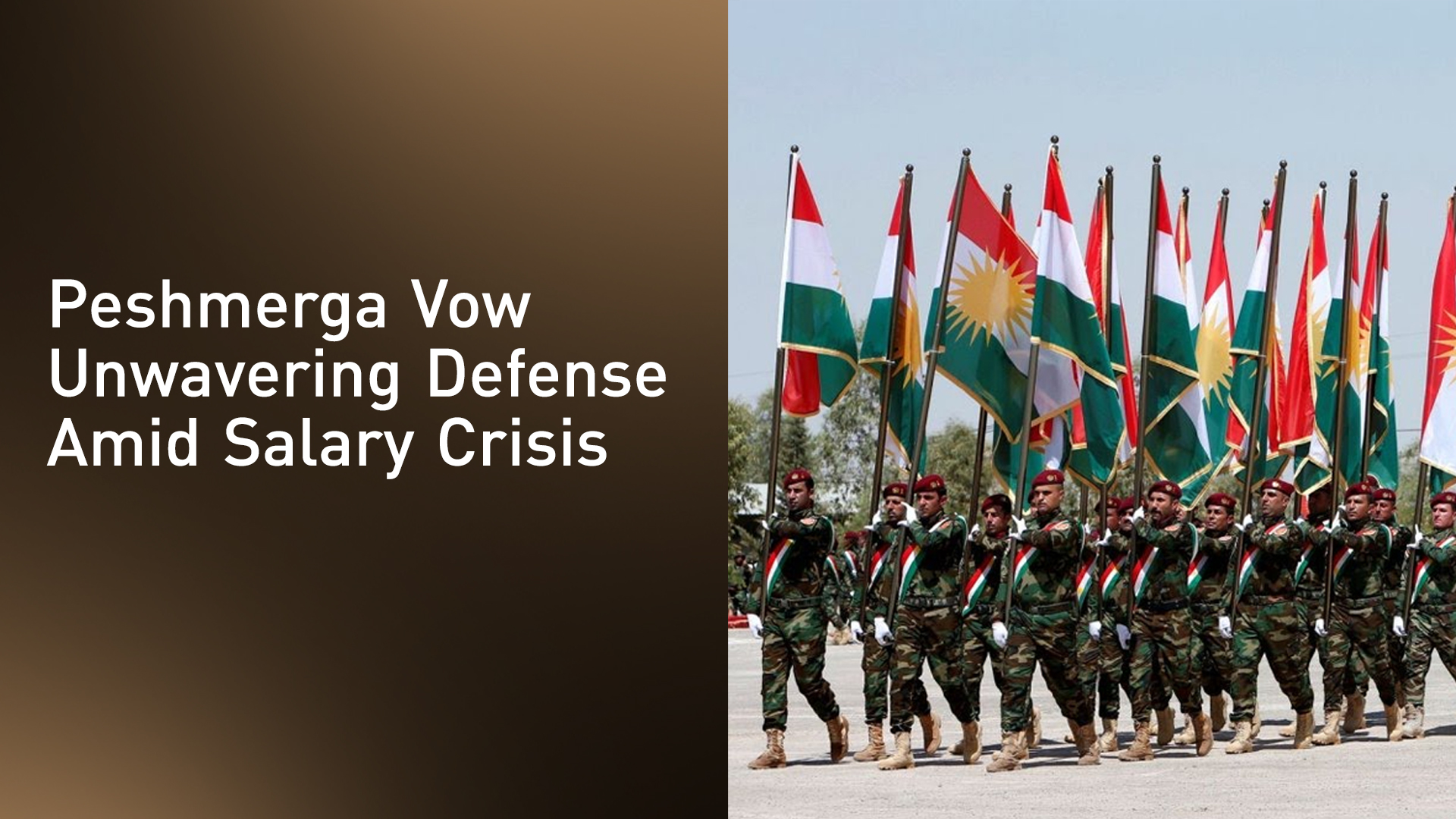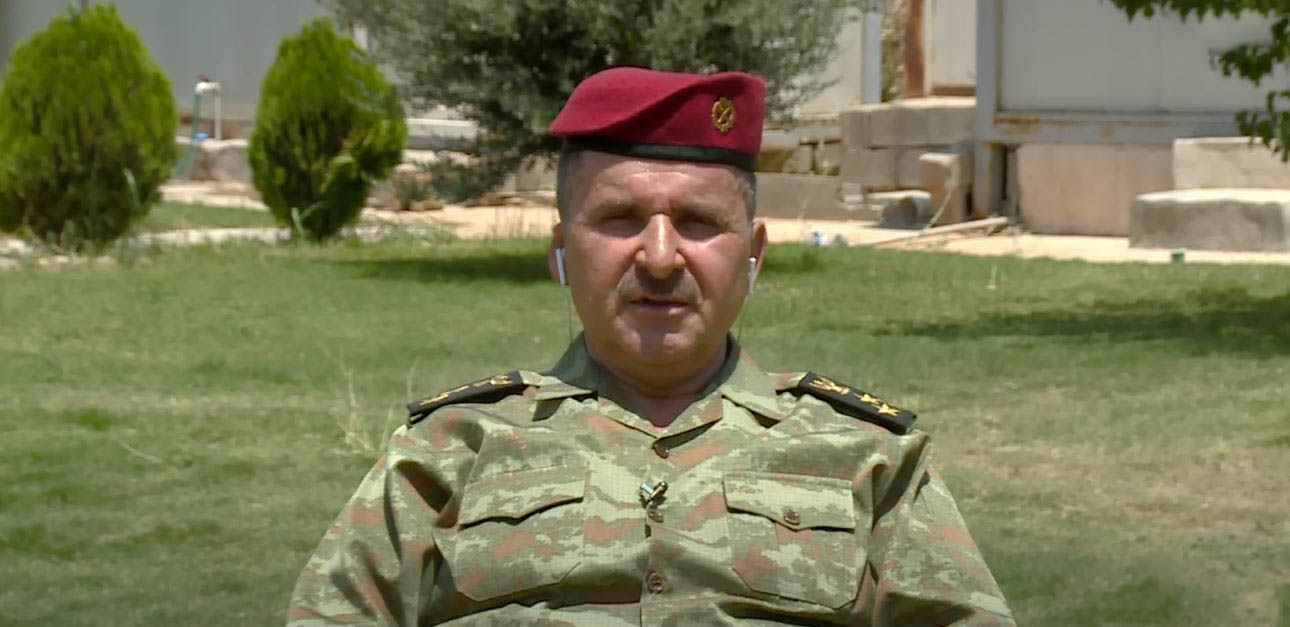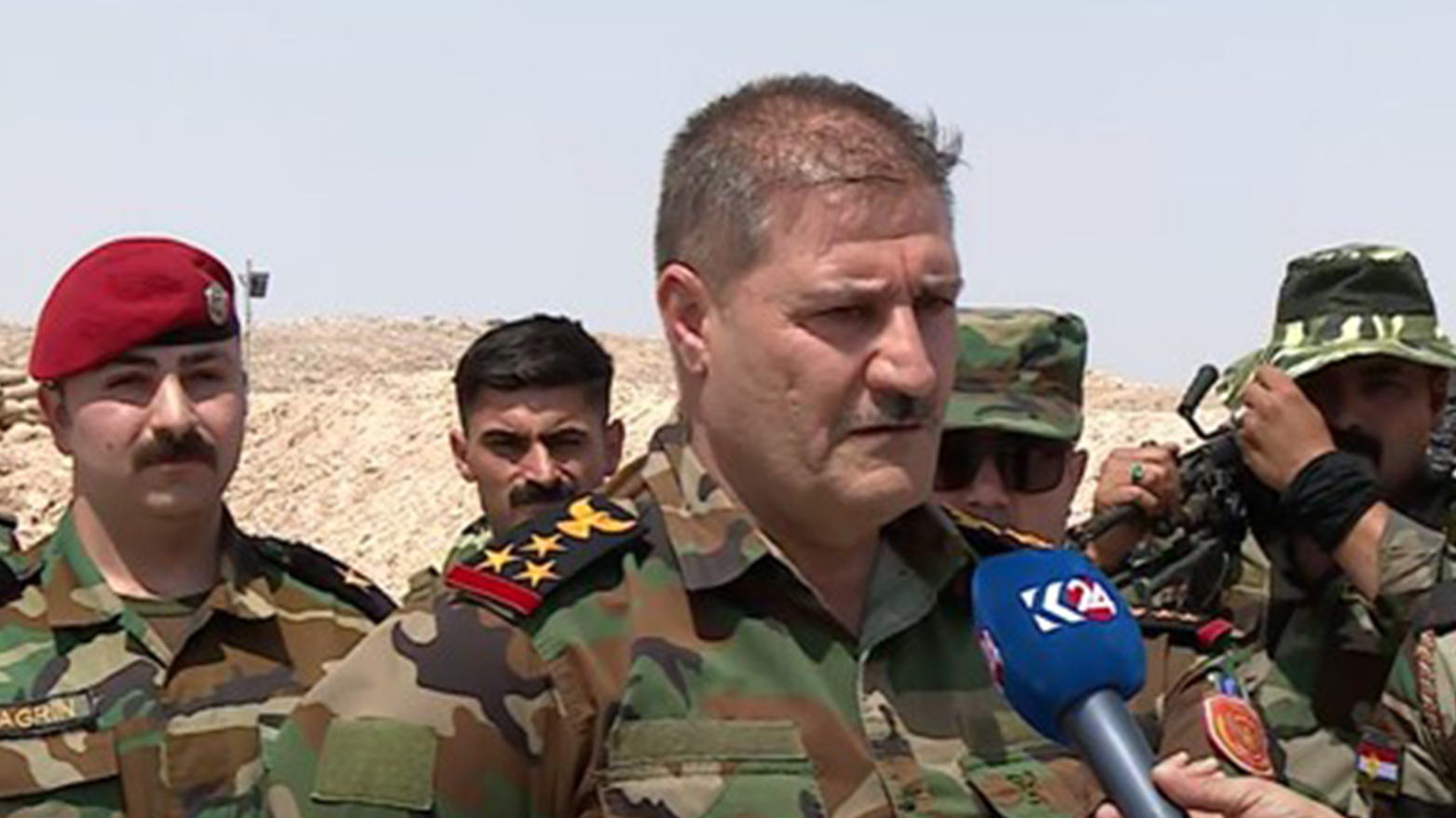Peshmerga Vow Unwavering Defense Amid Salary Crisis
"The ideology and belief of the Peshmerga, from the mountains of the past to the cities of today, has not changed. It is not prepared to bow to the enemies of the Kurds," the Deputy Commander Gawradeyi said.

By Kamaran Aziz
ERBIL (Kurdistan24) – Senior Peshmerga commanders have declared that their forces remain ready to defend the Kurdistan Region “with heart and soul,” rejecting rumors of low morale and affirming that political and financial pressures from Baghdad will not break their resolve.
Speaking to Kurdistan24, commanders from the Kirkuk, Makhmour, and Gwer fronts delivered a unified message of defiance, stating that the Peshmerga’s history and ideology are rooted in defending Kurdistan with or without a salary.
Brigadier Fatih Gawradeyi, Deputy Commander of the Kirkuk Front of the Kurdistan Peshmerga Force, thanked the Kurdistan Regional Government for its efforts to secure financial rights while placing the blame for the crisis on Baghdad.
"We thank the Kurdistan Regional Government for its insistence on securing the constitutional rights of the people of the Kurdistan Region, especially the right to salaries and financial entitlements, which has been decreed from Baghdad at the behest of external parties and enemies of the Kurds," Gawradeyi told Kurdistan24.
He explicitly rejected rumors about a decline in Peshmerga morale, invoking the force’s historical legacy. "The Peshmerga force is the force for defending the land of Kurdistan. It has a history of defending Kurdistan without salaries or any support, and it will never abandon its trenches against the enemy for the sake of a salary," he stated.
"The ideology and belief of the Peshmerga, from the mountains of the past to the cities of today, has not changed. It is not prepared to bow to the enemies of the Kurds," the Deputy Commander said.

This sentiment was echoed on the Makhmour and Gwer front. Brigadier General Srud Salih, Head of Operations for the front, told Kurdistan24 on Sunday that the situation there is "very calm and normal." He confirmed that despite the tensions, security cooperation with the Iraqi Army continues in areas with a security vacuum.
"We conducted a security operation today in the security vacuum between our forces and the Iraqi army, due to suspected ISIS movement in the area," he said.
Like Gawradeyi, Salih emphasized that the salary issue would not affect the Peshmerga’s performance, drawing on recent history as proof. "The lack of salaries has not had any effect, because this is not the first time the Peshmerga has seen this situation," he stated. "Previously, during the war with ISIS, the Iraqi government halted salaries for Kurdistan and all types of ammunition for three months under various pretexts. The Peshmerga still carried out its duty and defended the land of Kurdistan."

Both commanders affirmed their commitment, with Salih noting, "Peshmerga are present across all of Kurdistan, continuing their duties and defending the land of Kurdistan," and Gawradeyi confirming that coordination with the Iraqi army in the fight against ISIS continues.
The statements from senior Peshmerga commanders on two separate and critical fronts represent a coordinated and highly significant public message from the Kurdistan Region's military leadership. This message is strategically aimed at two distinct audiences: one internal and one external.
Internally, the commanders’ words are meant to bolster the morale of the Peshmerga forces and reassure the Kurdish public. By invoking the historical identity of the Peshmerga as a nationalist force that has long fought for an ideal rather than a paycheck, they are reinforcing a core tenet of Kurdish identity and preemptively countering any narrative of weakness or dissent within their ranks. The reference to the successful fight against ISIS under similar financial pressure serves as a powerful and recent example of this resilience.
Externally, the message is a clear and defiant signal to Baghdad and its allies. It communicates that using salaries and financial entitlements as a political lever to pressure the Kurdistan Region is an ineffective strategy that will not compromise its security posture. By framing the issue as a decree made at the "behest of external parties and enemies of the Kurds," the commanders are also engaging in political warfare, accusing Baghdad of acting against Kurdish interests under foreign influence.
Interestingly, this defiant political stance exists alongside a pragmatic operational reality. The confirmation of continued security cooperation with the Iraqi Army against ISIS, even as the political dispute rages, highlights a crucial duality. It demonstrates that while the KRG and Baghdad are locked in a political struggle, both sides recognize the necessity of on-the-ground cooperation to combat the shared threat of terrorism, separating immediate security needs from the broader constitutional and financial conflict.
